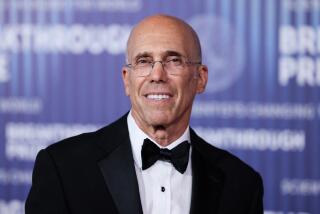Scarcely Senatorial
- Share via
There is considerable dispute about what was said by Sen. Alan Cranston (D-Calif.) and four other senators during an April, 1987, meeting with a federal savings and loan official about the status of the $2.5-billion failure of Lincoln Savings & Loan Assn. One thing is certain, however. The senators never should have conducted such a meeting. Senators are elected to legislate, not to meddle in the regulatory processes of the administrative branch of government.
This is especially true when the regulation concerns the business of political associates and/or campaign contributors. The Lincoln case just happened to involve Charles H. Keating Jr., the former head of Lincoln Savings & Loan of Irvine and the principal stockholder of Lincoln’s parent company, American Continental Corp. of Phoenix. Keating has been subpoenaed to testify before the House Banking Committee on Nov. 7. Lincoln has been seized by federal regulators and a government agency has brought a $1-million civil suit against Keating and family members and associates. Among the allegations of the suit, according to Common Cause, the citizens’ lobbying group, is that money was diverted from Lincoln to “fund the personal, political and charitable convictions” of Keating.
In fact, in addition to personal campaign donations, Keating contributed $850,000 to a cause near and dear to Cranston: three Cranston-affiliated organizations established to register voters. During the past four years, Cranston helped create six such organizations, five of which won federal tax-exempt status by pledging to act in more than one state on a nonpartisan basis. The six organizations received $7 million with Cranston’s help. There is some dispute about just how nonpartisan they were, since they usually concentrated on areas that tended to have more Democrats than Republicans. And there is some question about whether the groups were designed to assist Cranston’s reelection campaigns. But there is no doubt that the fund-raising device fudged the intent of campaign laws limiting individual and committee contributions to candidates.
The tax-exempt voter registration groups were particularly attractive to donors, since there were no limits on the size of contributions and the contributions were tax-deductible. And just what did the donors get in return, other than the satisfaction of helping broaden participatory democracy in America? Cranston acknowledged that those who make big contributions obviously get something: access to those in power. But Keating perhaps wanted more than that. He told the Wall Street Journal earlier this year that he had been asked if his support influenced political figures to take up his cause and, “I want to say in the most forceful way I can: I certainly hope so.” In fact, federal regulators delayed their seizure of Lincoln for two years after being told by by aides that the institution was insolvent.
Cranston says he merely wanted to accelerate a regulators’ decision on what to do about Lincoln. While Cranston acknowledges at least that he erred in creating the appearance of a conflict of interest in his relationship with Keating, he adds, “I did not violate any ethics rules or standards.” The appropriate authorities should make that determination.
More to Read
Get the L.A. Times Politics newsletter
Deeply reported insights into legislation, politics and policy from Sacramento, Washington and beyond. In your inbox twice per week.
You may occasionally receive promotional content from the Los Angeles Times.










